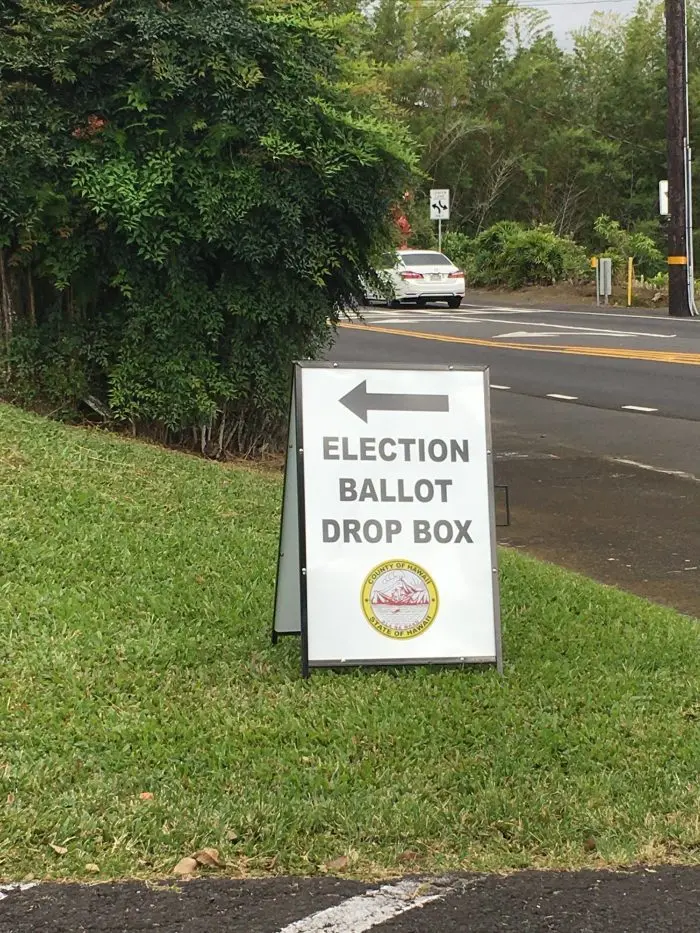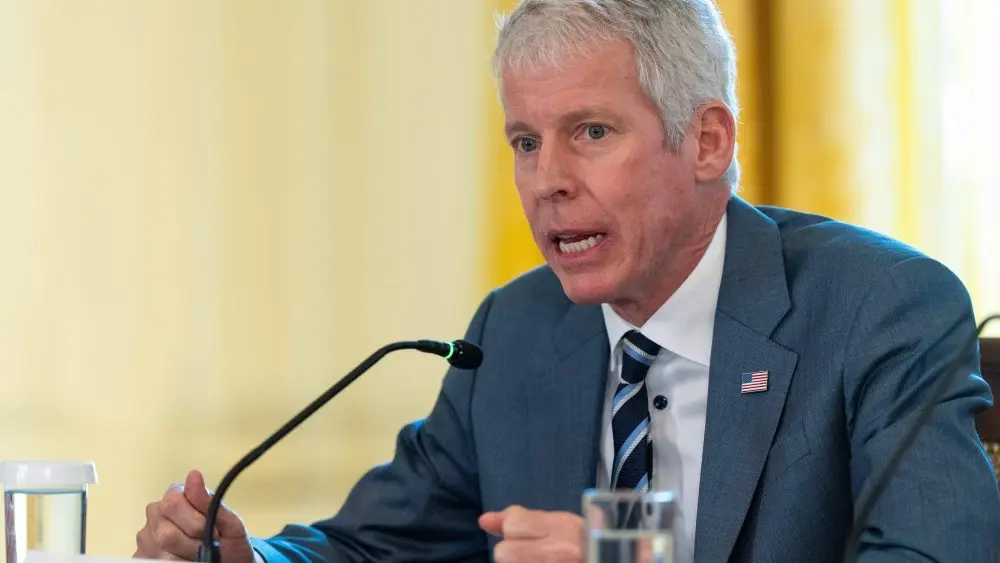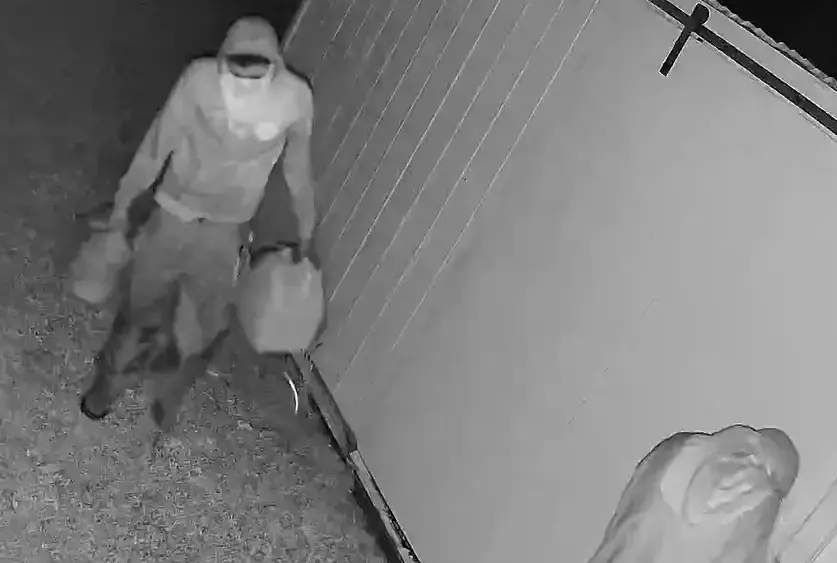Concerns about differences in voting counts between a county and the state in last year’s election prompted the Hawaiʻi Elections Commission on Wednesday to call for statewide audit of the elections.
The commission initially voted 9-0 to ask the Legislature to direct the Hawaiʻi Office of the Auditor to audit only Kauaʻi County’s general election. It was based on a recent investigation of the vote that found the state Office of Elections reported a vote count that was significantly higher than the number of ballots recorded by county officials.
But the commission, at the recommendation of commissioners Lindsay Kamm and Ralph Cushnie, subsequently moved to expand the scope of the audit to the entire state. Commission Chair Mike Curtis and John Sabas, one of two new commissioners, abstained from the vote.
The commission also voted to ask the Legislature to consider returning Hawaiʻi to one-day, in-person voting, and narrowly rejected a proposal to fire the chief election officer, Scott Nago.
In terms of the requested audit, it’s unclear what comes next. The Legislature, which has authority over the state auditor, is not in session until January. And preparations for the 2026 election, including an Aug. 8 primary, are already underway.
But even Nago agreed that it would be better to have the audit conducted by the state auditor rather than have the Office of Elections solicit requests for information and proposals to contract with an outside vendor.
As Kamm put it, the public would have more faith in having a party external to the Office of Elections do the auditing. She expressed hope that the audit would be thorough — “deep, slow and wide.”
Kamm explained that she had a lengthy conversation with Les Kondo, the state auditor, about the possibility of an audit, suggesting that no additional costs would be incurred for the work, as the auditor conducts audits all the time and often hires outside contractors.
Cushnie, who has long called for Nago’s firing, said, “Scott Nago cannot be trusted to investigate himself.”
While a commission panel found voting irregularities on Kauaʻi, a second panel’s investigation told the commission Wednesday that allegations of voting discrepancies in Hawaiʻi County were not credible.
Ultimately, however, a majority of the commission felt it best to expand the audit in order to ensure voters have faith in the process.
Commissioners also passed a motion — also from Cushnie — to ask the Legislature to consider returning Hawaiʻi to one-day, in-person voting with exceptions for military personnel. The state implemented a statewide mail-in voting system in 2020, although it allows residents the opportunity to vote in person for a period leading up to and on Election Day.
That led to a lengthy, often impassioned comment period from the public as well as discussion among commissioners that included arguments that mail-in voting is not secure on one side, and that there is no evidence of voter fraud from mail-in voting on the other.
The vote was 7-0, with Sabas and Curtis abstaining. Curtis said the issue was “above my pay grade” and was an issue for the Legislature, not the commission.
The motion to fire Nago was rejected 5-4, with Curtis, Jeff Osterkamp, Clare McAdam, Sabas and James Apana, the other new commissioner, voting no. Sabas and Apana, both Democrats who were appointed to the commission only last month to fill two sudden vacancies, said they did not know enough about Nago to decide whether he should be fired but would keep an open mind going forward.
Report: No Problem With Big Island Vote
Wednesday’s meeting lasted more than seven hours. It included a report from commissioners Osterkamp, McAdam and Kahiolani Papalimu that determined “a purported discrepancy of more than 19,000 ballots” between Hawaiʻi County and the state in the 2024 general election was unfounded.
“In short, we find a complete lack of credible evidence to support the claim of a significant ballot discrepancy,” the report stated.
While the commissioners wrote that “it is appropriate” to identify problems in voting that need resolution, “it is also our responsibility not to unnecessarily feed mistrust in voting or otherwise harm the system we oversee.”
The 220-page report (including appendices), which addresses voting problems alleged by Cushnie, added: “When we encourage voters to pursue conspiracies or to believe that government workers are hiding ballots or creating new ones, we significantly damage the system on which our democracy depends.”
The report will be discussed in detail at the elections commission’s next meeting, but commissioners clashed over the report’s conclusions Wednesday anyway. Osterkamp accused Cushnie of being on a crusade to get rid of Nago. And Papalimu said she did not agree with the report, accused Osterkamp of deceiving her in crafting its content (something he denied) and demanded that her name be removed from the report.
Nonetheless, the commission voted 6-3 to instruct Nago to ask Hawaiʻi County to ask the U.S. Postal Service to produce receipts generated by mail-in ballots as a way to ascertain the exact vote.
A third report from a commission panel, this one on charges of complaints relating to the chain of custody of election ballots and reported irregularities on the part of Nago, was disputed by Nago himself in a report submitted to the commission Sept. 26.
Nago stated that the election records reported by the counties and the state “are verified” and that suggestions of ballot count discrepancies “are mischaracterized.”
Nago concluded that the commission panel’s report, sometimes referred to as the malfeasance report, “made unsubstantiated allegations to discredit election officials. Such unsubstantiated allegations are destructive to government operations and seek to erode the will of the people fostered by secure, accessible, and convenient elections.”
The panel was chaired by commissioner Dylan Andrion, a frequent Nago critic and Cushnie ally. That report also called for Nago’s dismissal and an end to all mail-in balloting.
Story originally published by Honolulu Civil Beat and distributed through a partnership with The Associated Press.





